Make Britain confident again: manifesto for a woman of firsts
After the 2024 poll trouncing and under pressure by Reform, Badenoch aims to show Brits the Tories ‘are under new leadership’.
Kemi Badenoch has the toughest job in British politics. She is the leader of the British Conservative party and therefore of His Majesty’s Opposition. This week Donald Trump, apparently the progenitor of a centre-right resurgence around the West, made her life harder.
Trump grotesquely labelled Ukrainian leader Volodymyr Zelensky a dictator and claimed Zelensky had started the war with Russia and had only a 4 per cent approval rating. All of these claims are manifestly untrue.
Badenoch had been basking in an associated glow from the Trump victory. Trump seemed to energise all centre-right forces and Badenoch was happy to claim her share of that. But now she was forced into direct repudiation of Trump.
“President Zelensky is not a dictator,” Badenoch posted on X.
She went on: “He is the democratically elected leader of Ukraine who bravely stood up to Putin’s illegal invasion. Under my leadership, and under successive Conservative prime ministers, we have and always will stand with Ukraine.”
President Zelenskyy is not a dictator. He is the democratically elected leader of Ukraine who bravely stood up to Putin’s illegal invasion. Under my leadership, and under successive Conservative Prime Ministers, we have and always will stand with Ukraine.
— Kemi Badenoch (@KemiBadenoch) February 19, 2025
President Trump is…
Badenoch is in good company. British Prime Minister Sir Keir Starmer issued a similar statement. So did a lot of politicians who have been Trump backers or inclined to think Trump more good than bad. Former British prime minister Boris Johnson said Trump’s statements were untrue. Former Australian prime minister Tony Abbott, a friend of Badenoch, said Trump was “living in a fantasyland”.
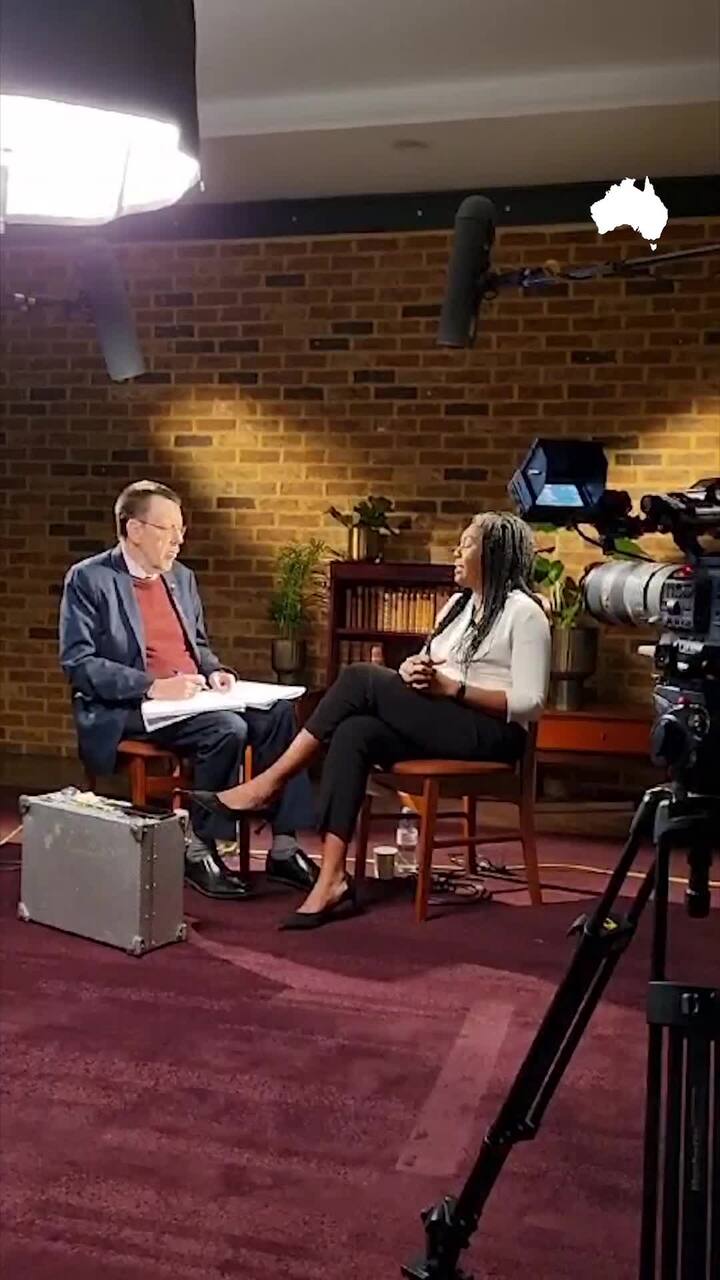
Badenoch became leader of the devastated Conservatives in November 2024 after they were crushed in the general election in July. She comes from the party’s Right, she was known for having tough ideological fights, she campaigned for Britain to leave Europe via Brexit before she became an MP, she represents a new generation of Conservative leadership.
I sat down with Badenoch during the Alliance for Responsible Citizenship conference in London for her first extensive interview with a foreign newspaper.
She represents a lot of firsts for her party. At 45, she’s young. She’s the first woman to lead the Conservatives in opposition since Margaret Thatcher in the 1970s. She’s the first leader of African background. She was born in London but raised by her African parents in Lagos, Nigeria, until she was 16. She first emerged as an unlikely leadership contender, though with a lot of support, in the wake of Johnson’s ouster.
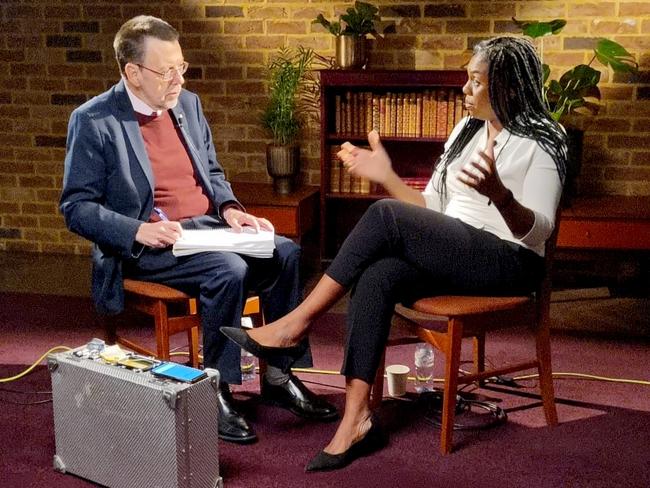
In the Conservative party leadership contest in 2024 she convincingly beat her nearest rival, Robert Jenrick. She won a big majority with Conservative party rank-and-file members. They are disproportionately white, male and older. That a young black woman won them so convincingly says something good about her and something good about them.
It’s worth pausing to note the contrast with Labour. Though supporting identity politics, Starmer eagerly taking a knee in the Black Lives Matter movement though it had nothing to do with Britain, allegedly championing the position of racial minorities, including all sorts of affirmative action, British Labour has had exclusively white male leaders.
The allegedly reactionary Conservatives, pictured on every TV political drama as harbouring all sorts of prejudices, have had four female leaders (Thatcher, Theresa May, Liz Truss and Badenoch) including three female prime ministers. They’ve had a Hindu Indian background leader and prime minister in Rishi Sunak and now an African background leader. Diversity is, surely, as diversity does.
But the happy story ends there, for Badenoch’s task ahead is mountainous. She made her name as a right-wing warrior, especially in the culture wars, and had a reputation for being a bit spikey, never one to walk away from a fight over policy or philosophy.
I find her an engaging, cheerful and charming woman, well aware of the colossal challenges ahead.
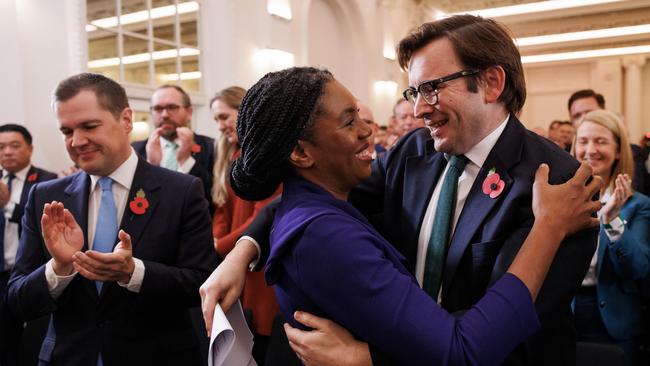
The Conservatives have only 121 MPs out of 650 in the House of Commons, not much more than perennial minor party the Liberal Democrats, who have 72. The last election was the worst defeat in the history of the modern Conservative party. After 14 years in office, its final years were a shambles, with Johnson replaced as prime minister by Truss, who was replaced by Sunak, who lost in a devastating landslide victory to Labour’s Starmer.
Centre-right parties are doing well all over the Western world, except in Britain, where the electoral cycle caught up with the Conservatives in the worst way. Not only that, Nigel Farage’s Reform UK party, which espouses many traditional conservative values but is not tainted by a long period of ineffective government, recently displaced the Conservatives in the polls, pushing them into third place behind Reform and Labour.
“My party’s just been kicked out in a heavy defeat,” Badencoch says. “I need to show we are under new leadership, and that the new leadership is very different from the people who went before.
“We can see that the left-wing Labour government obviously has no answers. There’s also a new challenge on the right (Farage) from people who say they can do it, but they’ve got no experience, they’re completely untested.”
Badenoch puts her campaigns into a global context. She told the ARC conference that Western civilisation was in existential crisis, threatened within and without.
I ask her to nominate Britain’s biggest problem today: “We’ve lost confidence as a country. But this is the worst possible time to be demonstrating weakness.
“That loss of confidence manifests itself in a fear of policing properly, in not spending on defence, in too many people deciding they’re not going to work as the state can take care of them, in allowing the degradation of virtues and morality in public life because anything goes.
“It manifests itself in extreme gender ideology where at one point rapists were being put in women’s prisons.
“Things that even 10 years ago would have seemed absurd are being accepted because of the fear of (political) conflict. That is at the heart of both the cultural and the economic malaise.”
Badenoch says she will not rush into declaring specific policies this early in the political cycle. But she has a raft of strong positions already.
She’s not a climate change sceptic, she says, but she is a strong sceptic of net-zero targets. She wants a big reduction in immigration to Britain, which she believes has got out of control. She champions much greater defence expenditure and says that in cabinet she argued for defence spending of 3 per cent of GNP (it is now about 2.3 per cent).
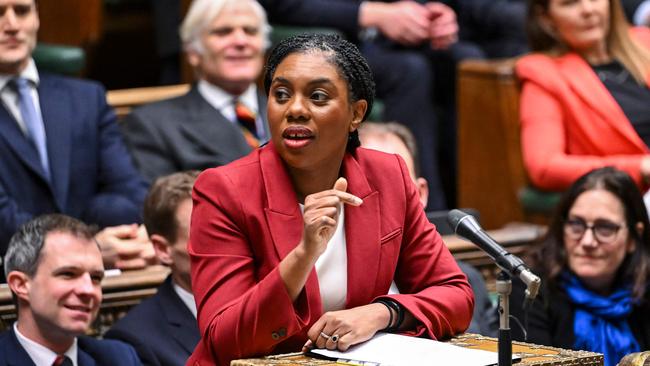
She repudiates many of the mistakes of the past Conservative governments, famously saying they “talked right but governed left”. And she wants to reform and reduce the welfare state. Her stated principles include sound money and fiscal prudence.
These positions are all strong in themselves, enjoy widespread support from Conservative voters, are certainly capable of being sold to the British public and make up the bare bones of a pretty good program. But Badenoch faces two big problems in prosecuting her agenda. The first is that to any policy proposal from the Conservatives at all, a big part of the public reaction is: your party was in office for 14 years, why didn’t you do it then?
And the second is that the public is not really paying attention.
Does she think the public is listening to the Conservatives yet? “Not yet, no,” she answers with disarming honesty.
“I think it takes time. A political analyst told me it takes about two years. I expected the first 18 months of this job to be horrendous. The public are not yet ready to hear they need to go back to the Conservatives. They will give the new government a chance. But they’ve also given us a job – to hold the government to account and to provide an alternative.”
Badenoch’s background naturally arouses a lot of interest. She seems, and describes herself to be, a happy person. She is passionately in love with Britain.
Although she was born in Britain her family took her to Lagos when she was only a few months old and then sent her back to live in Britain when she was 16. As she says, she effectively looks at the UK through the eyes of a first-generation migrant. She loves Britain, she loves the values it’s based on and she loves the Western civilisation of which it is part.
Her journey to conservative conviction may seem singular, but it’s not at all uncommon for first-generation migrants to be conservative, often more conservative than the society they join. Witness Trump’s success with Hispanic voters.
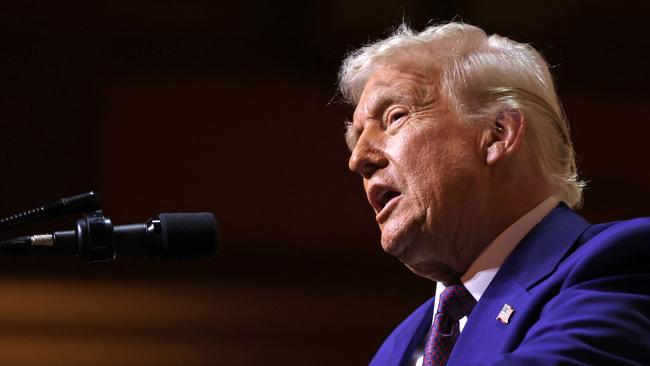
So when did Badenoch fall in love with Britain, and why?
“Probably before I was 16. Many people don’t understand what living in a former colony was like. Everything we watched was BBC. I was imbibing so much British culture and thinking: what a wonderful place.
“Arriving here, the sentiment I felt more than anything was freedom. I lived in a place (Nigeria) that was so restrictive. You can’t do this, you can’t say that, girls are not supposed to do this. There was so much control. I laugh when I hear people talk about the patriarchy of the West. They don’t understand what a real patriarchy looks like. And just being here, the freedom, the opportunity, you can go where you like, you’re not going to get into trouble for the things you say.
“The love (for Britain) was there before I came back. When I got back, I was home.”
Her journey to active political conservatism also owes something to Nigeria: “I recognised things from when I was growing up creeping into Britain.
“Cancel culture reminds me of mobs. Only I saw real mobs, lynch mobs, come out of nowhere and take people down, whether they were innocent or not. The presumption of innocence is very important to me. It’s a value that’s very rare and very precious.”
She joined the Conservative party for many different reasons. She was looking to do something more with her life than just work, not that there’s anything wrong with work. And she thought she might make a few new friends – in fact she met her husband in the Conservative party.
“I knew I was definitely not Labour. And those Lib Dems are very silly people. My work colleagues told me: ‘You’re very right-wing.’ I had also bought into the myth that being right-wing was a bad thing. It’s not of course.
“I was reading Thomas Sowell and (Friedrich) Hayek. And I thought, you know what, I am right-wing. I was 25 when I joined the Conservative party.”
Was she accepted there for who she was and what she could contribute?
“Yes. Much more so than I was in Nigeria. People don’t realise that multiculturalism and multiracialism are very different things. In Nigeria we were all one race but lots and lots of different cultures. I was often somebody who didn’t fit in there. Here I felt more accepted.
“I wouldn’t be able to stand for election as easily in Nigeria as I can here, not just because I’m a woman. They have very, very strict rules about blood lines in Nigeria. I couldn’t have stood in Lagos. I’d have to trace my ancestry back to inland Nigeria.”
That sounds a lot like contemporary Western identity politics.
“It’s Western countries, the UK in particular, that don’t look at your skin colour or where you came from. We shouldn’t throw that away. We shouldn’t let people exploit that. Just because we’re open doesn’t mean anything goes.”
Badenoch is reliably anti-woke on pretty well all issues.
She utterly scorns the idea that Britain should pay reparations to former colonies, or to societies where people once owned slaves: “I don’t accept the concept of inherited racial guilt. Certainly not after so many generations.”
At every level, in her view, it defies not only morality but logic: “There’s an assumption that everyone (in Britain) benefited from these adventures (colonialism). But there was a very big class of poor people who did not enjoy those things that might have been seen by the aristocrats and elites. Why should they pay?
“The other thing is once you hear people talking about reparations for the past, you know they’re not focused on the future. It’s a belief that there’s nothing more to come. Let’s divide what we have and you owe us. So many of these calculations don’t even make any sense. The very fact that we have a Labour (Party) government that for years conceded those arguments and now finds itself in government not knowing where to turn shows we need strong leaders on these issues.”
On immigration, Badenoch says Britain is seen as a soft touch. She has announced policy on hard caps on overall numbers, on visas and on the peculiarly British system that says that after a certain amount of time people have an “indefinite leave to remain”.

Millions of people, she says, want to live in the West because of the benefits: “We can’t support all those who want to come here and we have no obligation to do so. The British people must come first.”
She thinks the net-zero target is completely unachievable: “Why net zero in 2050? Why not 2049? 2051? Does it make sense at all if China is building a coal-fired power station every other week? We’re not doing it the right way for the UK.”
She’s all in favour of looking after the environment, keeping the air clean, but not at the cost of bankrupting England. A giant gas discovery was recently announced in Britain. In echoes of Australia, she thinks gas has to be a big part of Britain’s energy future.
She’s very positive about AUKUS – which Brit wouldn’t be given the amounts of money involved in nuclear-powered submarines? But she takes it further, saying: “We need to strengthen credible alliances. AUKUS is a force for good in the world. But it certainly requires more spending on defence and security.
“We have to do more on defence. In the Cold War, when we weren’t even fighting, we were spending 4 per cent (of GDP) on defence, now it’s a little over two. Our economy is oriented towards the welfare state rather than an economy that can defend itself. The state is not creating wealth.”
She tells me she wants to reduce the welfare state but she understands this will be a huge project requiring complex trade-offs and specific plans. Too much politics on both sides, she says, has been bold announcements with no plans behind them. In a nation such as Britain, when the politicians have no plan the system ends up producing a statist, left-leaning outcome.
She has generally been positive about Trump, though we spoke before the US President’s grotesque remarks about Ukraine.
Badenoch says: “I think what his victory shows is that you don’t have to worry too much about the commentariat class. It has its own narrative and its own agenda.” Instead, Trump shows a political leader can speak directly to the voters.
Whatever happens, Badenoch is going to be a central figure in the future conservative project in Britain, riding the new vibe of the time to re-establish the Conservative party, or on the other hand perhaps losing the party ascendancy to Farage. There is a huge amount riding on her, and while she has not yet set the nation on fire, it’s very early days.
Badenoch describes herself as “a cynical optimist”. The cynicism helps with the politics, the optimism helps with voters, and with life.
The cynicism is well justified. As to optimism, that remains to be seen.
Greg Sheridan travelled to London as a guest of the Alliance for Responsible Citizenship.


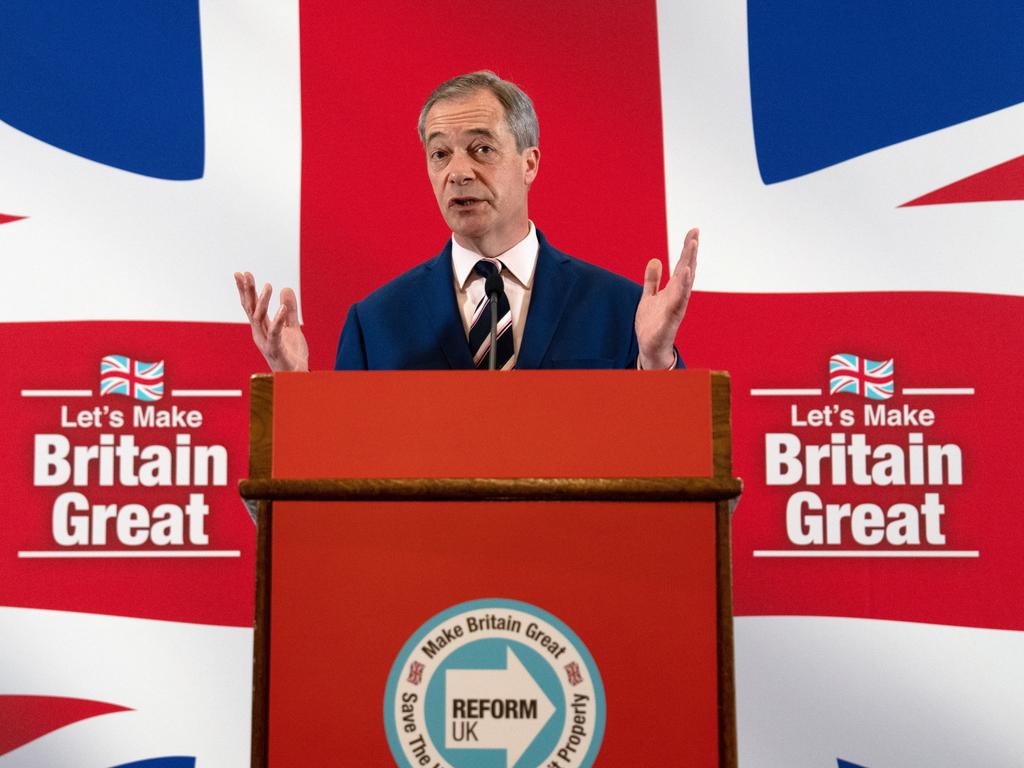
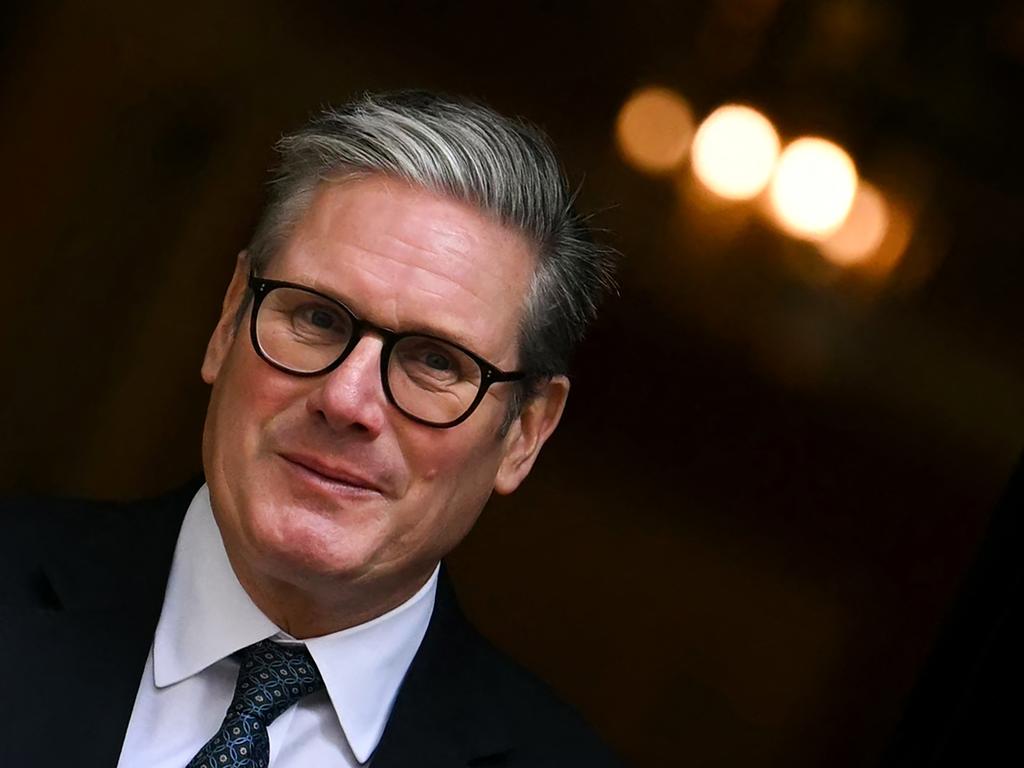
To join the conversation, please log in. Don't have an account? Register
Join the conversation, you are commenting as Logout